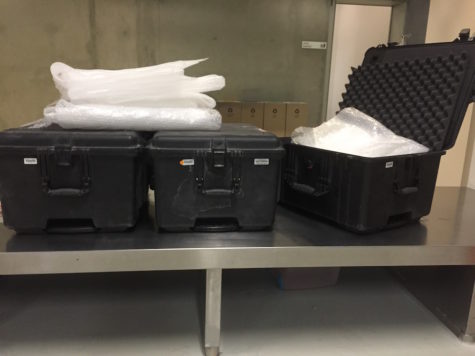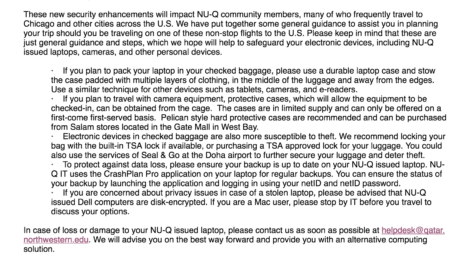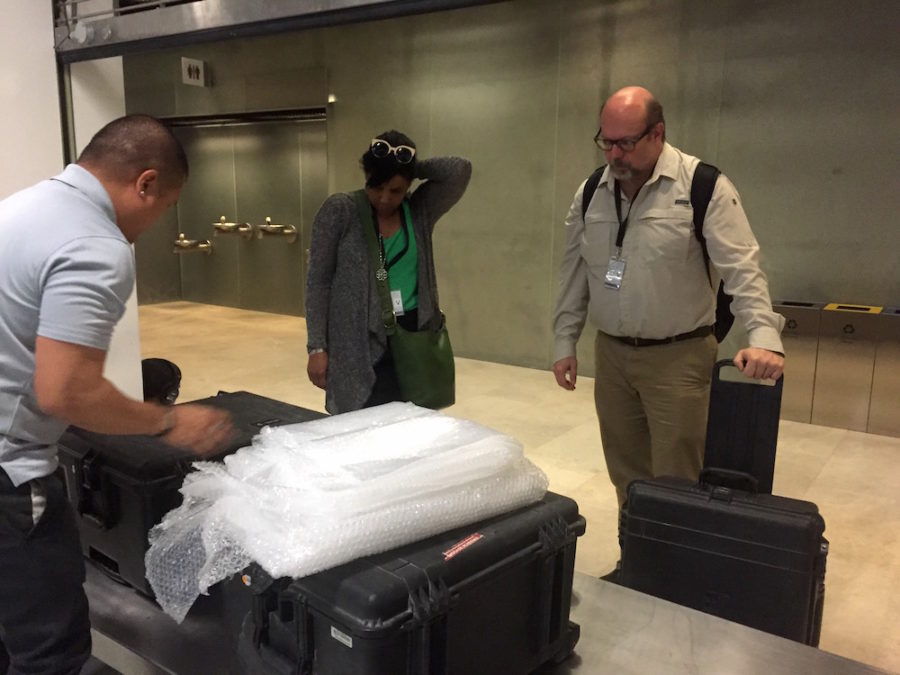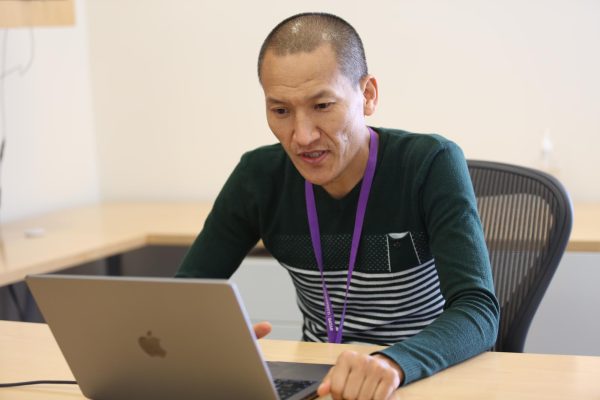Northwestern students face difficulties due to US electronic ban
The recent electronics ban by US authorities has caused difficulties for Northwestern University’s students and faculty, who arrived in Doha from Chicago last week with laptops and filming equipment to work on class projects.
The electronic ban, which was announced on March 21 and goes into effect today, prevents cabin carriage of large electronic devices on non-stop flights to the United States from 10 airports in the Middle East, including Qatar’s Hamad International Airport. Devices such as laptops, tablets, cameras and video game players have been banned, citing safety concerns about possible terrorist attacks using electronic devices.
Two professors and 10 students from Northwestern’s Medill School of Journalism in Evanston, Illinois, arrived in Doha on Friday, March 17 to work on a collaborative digital project with Northwestern University in Qatar journalism professors and students. They each came with laptops, some with DSLR cameras, and a few with kindles and iPads, which they carried on board on their flight from Chicago.
“I carry my gear in my bag and have it on me all the time [during travel] because they’re fragile,” said Craig Duff, a journalism professor at NU-E who travelled with the group.
He added that travelling with electronics on hand is essential for journalists. “If you don’t have your camera, you don’t have the tool you tell stories with,” Duff, who is also a video journalist, said. “If something happens on the plane and you want to get a picture, you’re kind of stuck with just your iPhone.”
When the group learned of the United States’ Transportation Security Administration’s ban on Tuesday, they became concerned about how they would bring these now-restricted electronics on board back to the US, the safety of their equipment in checked luggage, and how they would spend their time on the 14-hour flight without them.
We prepare them [students and professors] to hand carry their equipment. It’s more safe from theft and equipment is expensive.
“Happily, here at NU-Q they had resources and sprang into action to help us,” Duff said. NU-Q’s production department facilitated the professors and students by providing them with tough Pelican equipment cases filled with bubble wrap, which can protect and store their equipment that will be checked in at the airport.
However, that might also prove to be problematic. “It’s potentially oversized and might cost us extra money to send it back,” Duff said.
According to Wielder Catapat, the manager of production operations at NU-Q, this is the first time they have encountered this kind of situation.
“We don’t usually prepare pelican cases [for travel]. For most of the time, we prepare them [students and professors] to hand carry their equipment,” he said. “It’s more safe from theft and equipment is expensive.”
Some students travelling, however, plan to comply by keeping their laptops, cameras and tablets in their personal checked-in luggage instead. Gustavo Parades is one NU-E journalism student who said he felt more comfortable padding his laptop between his clothing items in his own suitcase.

Cheryl Jackson, a NU-E journalism professor on the trip, expressed concerns about the safety of the electronics. “Will our data be protected? Will someone open our bags and go through our stuff?” she asked.
Members of the group said they were also worried about the long-term impact of the ban if it remains in place and how it affects those with these electronics who frequently travel overseas and who typically have long flights.
Duff, who travels overseas four to five times per year, called it inconvenient. “The hardest thing for me is I was planning on using the 14 hours on the flight to get some work done [on my laptop],” Duff said. “Our term starts next week and I have a syllabus to finish, so I have to do that now because I can’t take my laptop on board.”
Parades said he will not be able to enjoy the flight as he would like to without his laptop. “All my great music is on my laptop,” he said. “What am I going to do with myself on the 14-hour flight without it?”
On Wednesday morning, Michael McDonough, director of health, safety, security and environment at NU-Q, sent an email to the NU-Q community about the electronic ban and the precautions that should be taken before travel.

McDonough advised staff, faculty, and students to make sure their data is backed up and to pack their electronics in durable cases, which can be checked out at the equipment room, known as the Cage. Travelers should also check their airline policies to become aware of how to deal with potential damage, theft and missing baggage.
















